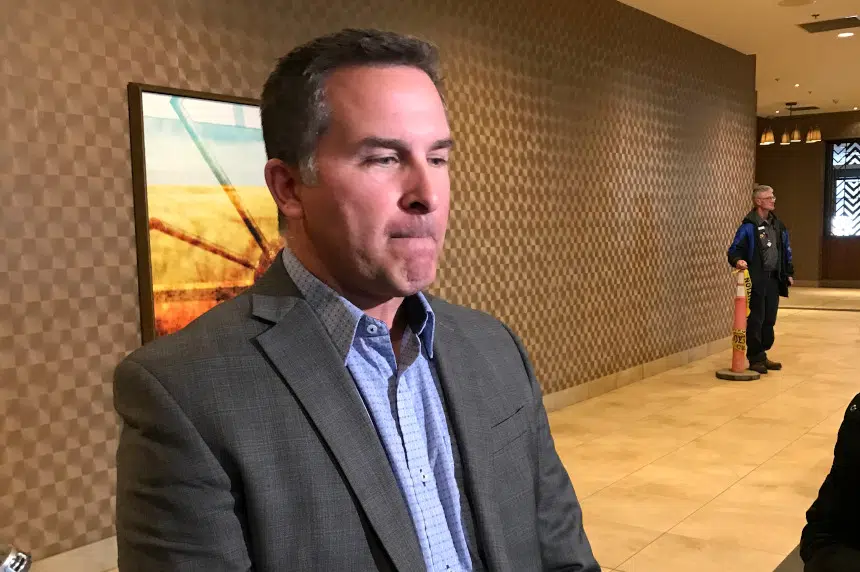A growing number of teachers in the province are pursuing collective action to refuse work, citing unsafe working conditions due to COVID-19 in response to the province’s return-to-school plan.
Saskatchewan Teachers’ Federation (STF) president Patrick Maze has noticed the popularity for work refusals increase through the week.
“It’s a lot easier to state that than it is to actually complete it and act on it,” Maze said.
Maze said conversations with Occupation Health and Safety (OHS) show teachers would have to show up to school to raise concerns about any dangerous working conditions, inform the supervisor — a principal or superintendent — and give the school a chance to correct any concerns raised.
If issues persist, teachers would have to take their concerns to the OHS committee at the school.
“It’s unacceptable for anyone just to straight out say, ‘I’m not coming to work,’ ” Maze said. “The problem is teachers are looking at the situation right now saying, ‘We’re not satisfied with our employer — or in this case — the government’s actions to make the situation right.’ ”
Teachers have argued that physical distancing is nearly impossible in already-crowded classrooms as COVID-19 cases continue to rise in Saskatchewan. Thirty more cases were announced on Friday with each case coming from what the province calls “communal living settings.”
“To me, that indicates how concerned and how serious this situation is that teachers are even contemplating on the first day of school saying, ‘I don’t want to work, I don’t want to go in that building,’ ” Maze said.
“That speaks volumes to the province’s back-to-school plan — it has way too many options and not enough direction.”
The STF isn’t currently considering any job action, according to Maze. With COVID-19 case numbers varying in each region of the province, there isn’t a province-wide desire for a strike or work refusal.
“Unusually dangerous work” is the term used in The Saskatchewan Employment Act that controls refusals.
According to a statement from the Ministry of Labour Relations and Workplace Safety, concerns raised from teachers are appreciated, but The Saskatchewan Employment Act is clear about the process for any employee to refuse to work.
“If steps have been followed and the appropriate safety processes and procedures are in place, the worker does not have the grounds to refuse to perform the actions or duties required of them,” the statement read.
“If an individual employee feels their work is unusually dangerous, the first step in exercising the right to refuse is for an employee to talk to their employer and express their specific concerns.”
Cancelling or delaying classes due to staffing shortages would fall on individual school divisions, which Maze said were already underfunded and understaffed prior to the COVID-19 pandemic.
With only a few weeks left until the start of classes, Maze is beginning to wonder if the myriad of issues raised by teachers will be resolved by September, or if classes will resume as scheduled.
“That’s the last concern — we left it too late now,” he said. “Now there’s even a new growing demand for a delay to the school year so we can respond appropriately to all of the concerns.”











